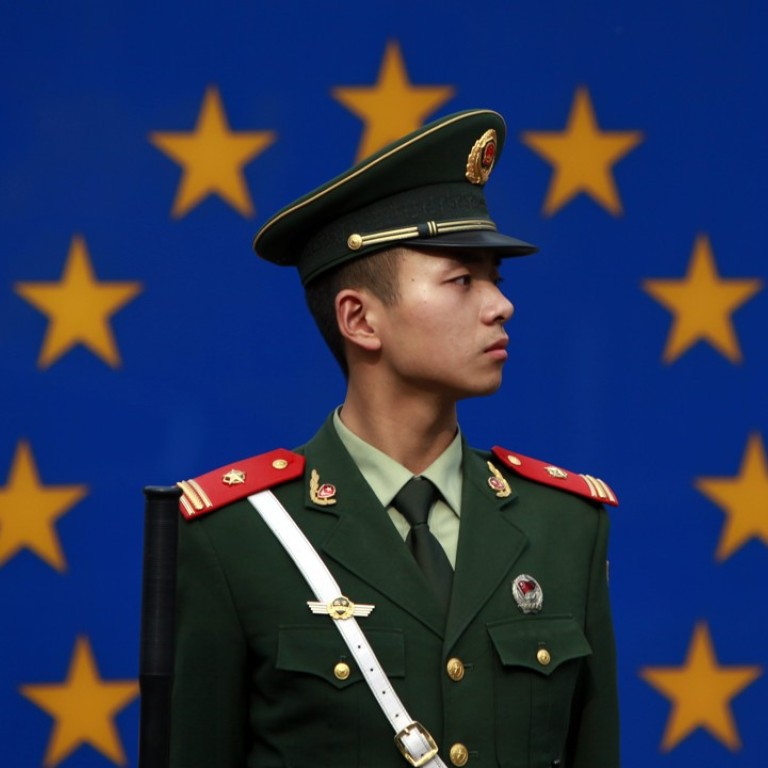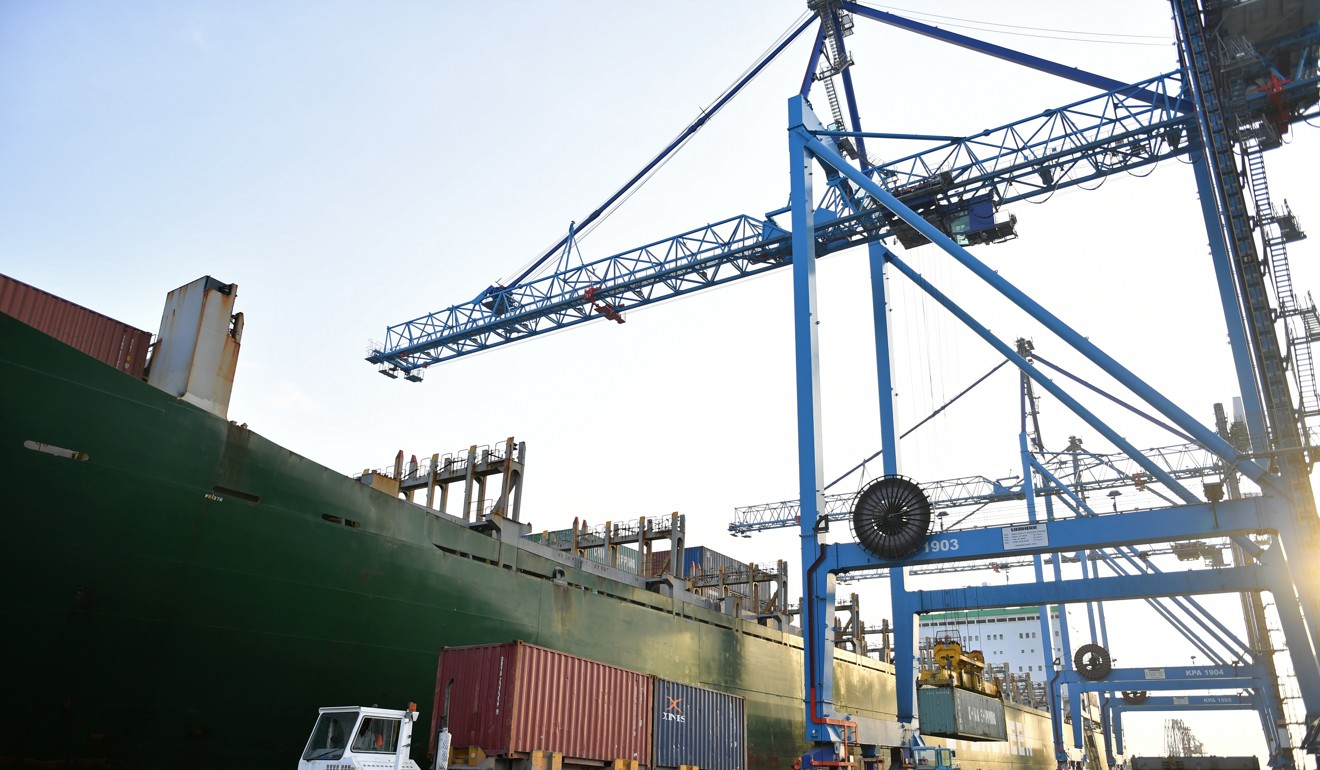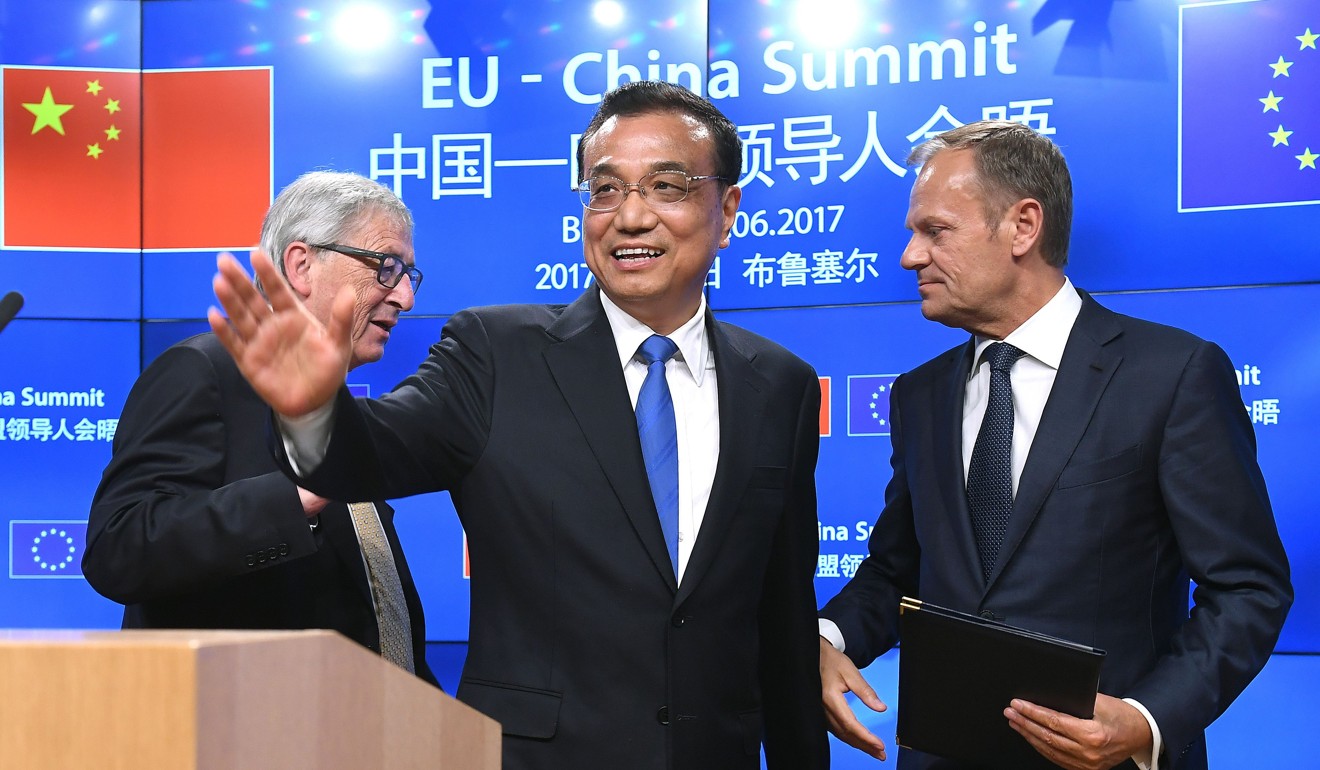
How a history of divisive tactics has made the European Union suspicious of China
Beijing’s exploitation of divisions and lack of consultation put bloc offside, diplomats say
Europe has grown more wary of China’s growing influence in the region and its ambitious new Silk Road project could test the European Union’s ability to put on a united front, according to diplomats and observers.
The doubts are building as China seeks to prove itself as a steady partner on free trade and climate change, filling the international void left by Washington.
The differences were on show at the China-EU summit in Brussels on Friday. Although the EU and China vowed to further push to uphold the Paris climate agreement and investment cooperation, trade disputes derailed efforts to issue a joint statement on climate change.
European diplomats said suspicions ran deep over China’s geopolitical intentions in Europe, particularly with its massive trade and infrastructure plan, the “Belt and Road Initiative”.
Some European diplomats said the plan would benefit the continent by boosting economic development among the bloc’s less developed member states.
Others said China’s aid and investment in Africa and the Middle East also helped to ease pressure of mass migration into Europe.
Nevertheless, doubts were mounting over just how sincere China was in promoting free trade, they said.
“The initiative is about promoting globalisation, which is positive,” one European diplomat said. “But it comes with Chinese characteristics. So it’s not really the liberal, market-oriented, rules-based globalisation that we would like to see. It seems to be more about hierarchy.”
That scepticism was also evident last month when representatives from several European countries refused to sign a trade statement at the belt and road summit in Beijing.
European diplomats said the main reasons for not getting behind the document drafted by China were a lack of discussions among the participating nations.

“The way the trade declaration was drafted, without really consulting anybody, suggests a Sinocentric mindset,” the diplomat said.
With US President Donald Trump’s antipathy towards Nato and his decision to withdraw the United States from the Paris climate accord, China has been angling to fill the gap in becoming the new ally for the European Union on various world issues.
Beijing has also repeatedly voiced its support for a united European Union.
But China’s growing influence in the region, particularly with its creation of the so-called 16+1 group with central and eastern European countries, has also caused unease over what some Europeans see as Beijing’s “divide and rule” tactics with the EU members.
Another European diplomat said that in more recent years, China had tried to exploit divisions within the bloc by dealing with individual member states on their own.
Western European nations had grown wary of Chinese efforts to lure eastern European nations to Beijing’s side, the diplomat said.
“And it seems it have started to work since a year and a half ago,” he said.

Steven Tsang, a specialist in Chinese studies at the University of London, said: “The 16+1 initiative is no more appealing to the EU than an EU initiative to develop a special relationship with, say, 10 of China’s provinces.”
Another European source said China had taken advantage of its close ties with smaller member countries to weaken the EU’s positions on various policies.
“The Europeans’ attitude is not as good as China thought,” he said, adding that the imbalance in investment and market access was one of the reasons for the growing negative sentiment towards China among some European countries.
Kerry Brown, professor of Chinese studies at King’s College London, said it remained difficult “for the EU as a whole to hammer out a consensus position” on the Belt and Road Initiative.
“The problem with the [initiative] is that there is little real detail at the moment,” he said.
“It is likely that member states will follow their own modes of engagement with the initiative. Some will be positive. Some more reserved.”
Additional reporting by Stuart Lau and Wendy Wu

